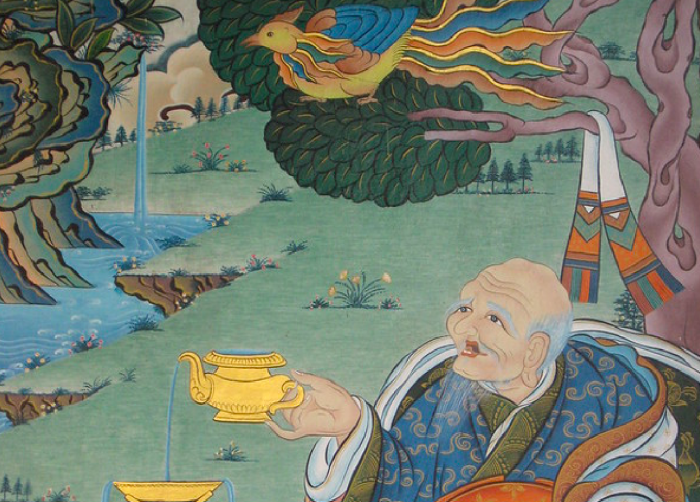I’ve been practicing Buddhism for three years, but I studied Buddhism several years before that.
Like many Westerners, I had misconceptions about Buddhism.
I want to clarify some of the misinformation that surrounds Buddhism because I think it’s important for newcomers and people who are interested in learning more.
I suspect that if you’ve read this far, you share some Buddhist ideals. Before we go any further, it should be known that I am not a Buddhist scholar, nor do I claim to be familiar with the wide variety of Buddhist schools of thought.
However, the basic teachings of the Buddha, which are a thread through all schools of thought, are what I share here.
Let’s jump in.
1. Buddhists worship Buddha statues >> Fiction
This one comes with a big, fat no. Buddha statues are a representation of the original Buddha, Siddhartha Gautama. Statues of the buddhas and other enlightened beings help connect us to wisdom, compassion, and sacredness. These symbols are meant to help us feel connected to our own truth within.
2. Buddhists believe the Buddha was a god >> Fiction
We believe that Siddhartha Gautama was a mortal being just like the rest of us. He didn’t have any special powers. He simply had come to the point in his journey where he was able to reach enlightenment and share that experience with the rest of the world.
3. Buddhism is a religion >> Fact and Fiction
This one can be tricky because according to Westerners, Buddhism is a religion, but if you study the doctrine, you’ll quickly understand why many disagree. Religion is defined as the belief in and worship of superhuman controlling power, especially a personal God or gods. (See #2)
You embody Buddhism. It’s a set of beliefs that become part of your life. For me personally, I don’t feel like it’s a religion. It’s still pretty debated.
4. Buddhists meditate a lot >> Kind of True
This varies with each school of thought. You are probably familiar with Zen Buddhism, which has become popular in the Western world over the past decade.
Zen Buddhism is a mixture of Indian Mahayana Buddhism and Taoism. It originated in China. It’s a cut-to-the-chase or a watered-down version of the ancient philosophy. Zen Buddhism is meditation-based. Most Western Buddhists practice a form of meditation; it’s a key part of the philosophy.
5. Buddhists believe Karma is Fate >> Fiction
Karma is often misunderstood. According to the Buddha, karma refers specifically to a person’s will. Karma explained in simple terms, you reap what you sow. You wouldn’t expect potatoes to grow if you planted corn. Just as you cannot plant seeds of doubt, fear, and anxiety in your mind if you want to experience happiness.
Think of karma as what goes in is what comes out.
When you begin to dig into Buddhist philosophy, you discover that there is much more than meets the eye. Coming from a deeply religious family myself, I was fearful to explore Buddhism at first.
Perhaps this will encourage you to take the plunge into the study of the Buddhist faith.







Read 2 comments and reply